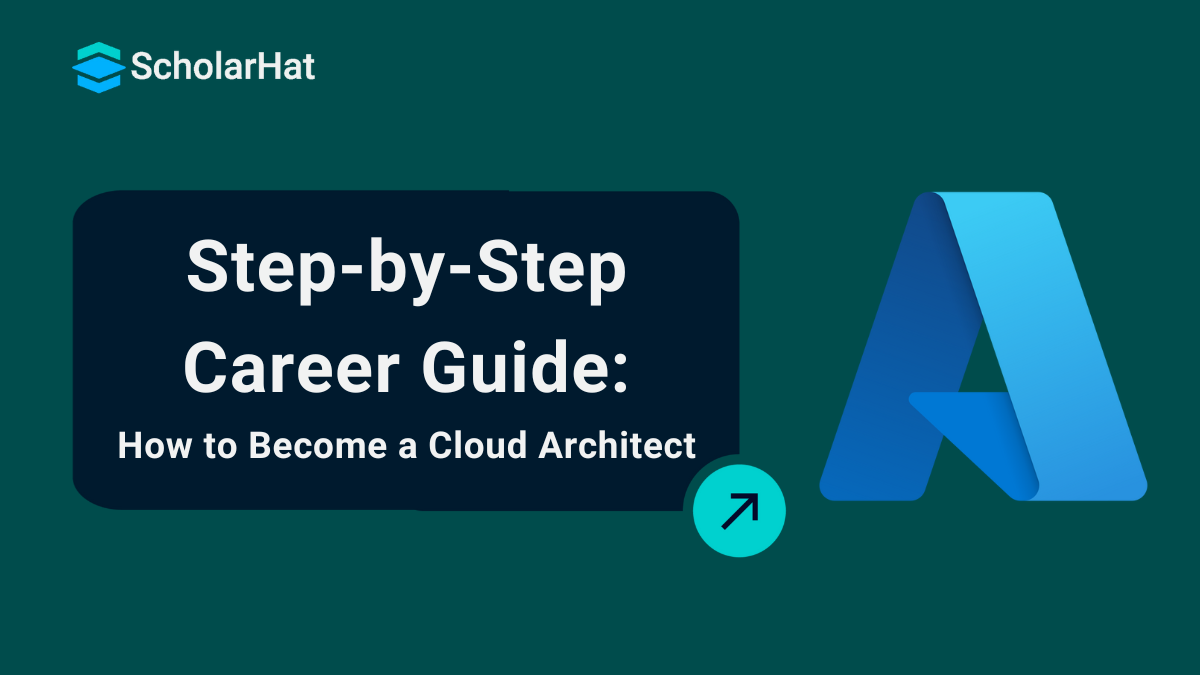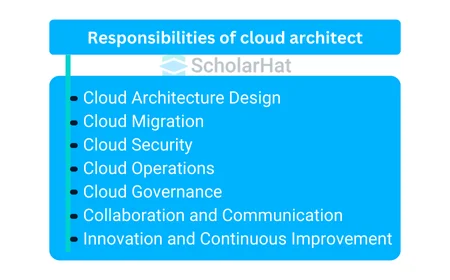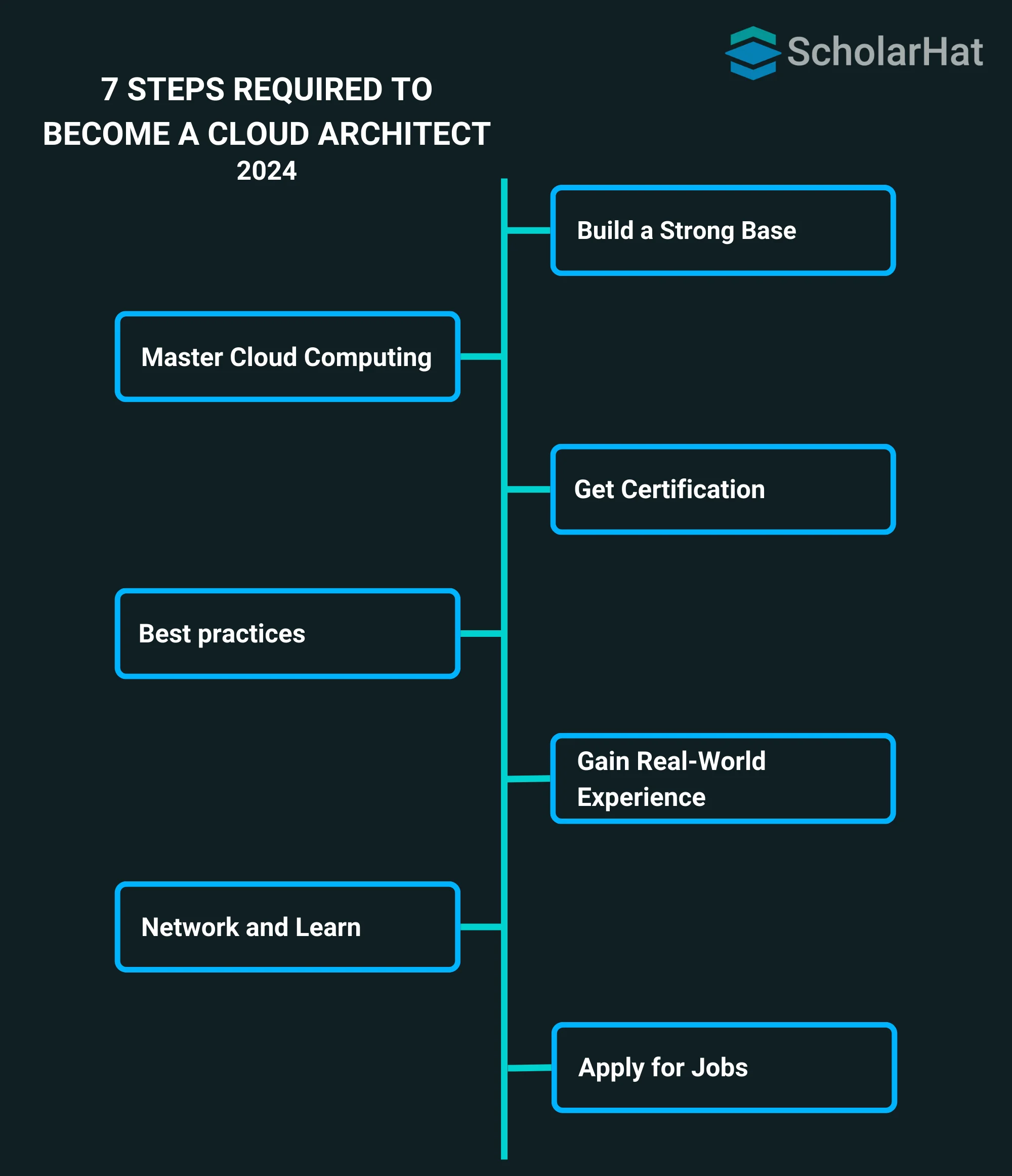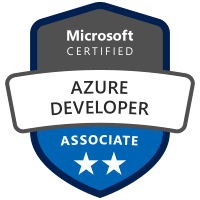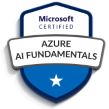06
FebHow to Become a Cloud Architect: Skills, Certifications & Career Roadmap
Are you ready to launch a rewarding career as a cloud architect? With the global demand for cloud computing soaring, becoming a cloud architect offers exciting opportunities and competitive salaries. This comprehensive guide outlines the cloud architect roadmap, detailing the skills, certifications, and steps needed to succeed in this dynamic role. Whether you're starting fresh or transitioning from IT, learn how to become a cloud architect with our actionable insights and expert tips.
In this Azure tutorial, we will explain what it means to be a Cloud Architect, what skills are required, and how to pursue this career path. Azure is powering 40% of global cloud infrastructure. Don’t get left behind—enroll in our Free Microsoft Azure Fundamentals Online Training today!
What Is a Cloud Architect?
A cloud architect designs and manages a company’s cloud computing strategy, creating secure, scalable, and cost-effective solutions that align with business goals. They bridge technical solutions and business needs, overseeing cloud operations, governance, and digital transformation.
Who are Cloud Architects?
- A cloud architect creates and executes a company's cloud computing strategy.
- Essentially, he creates a plan for the cloud architecture that is secure, scalable, and cost-effective while still supporting the established business objectives.
- He bridges the gap between business needs and technical solutions by overseeing operations and governance of the cloud.
- In other words, they are the strategic architects of a digital transformation journey for any organization.
Cloud Architect Job Description: Roles and Responsibilities
A Cloud Architect is like the main planner and builder for a company's cloud system. They make sure the company's technology works smoothly and safely on the cloud. This role requires a deep understanding of cloud technologies, business needs, and security best practices.
Key Roles of a Cloud Architect
- Strategic Architect: Thinks about how the company can use the cloud to achieve its goals in the future.
- Technical Leader: Provides technical guidance and expertise to the organization and helps others understand them.
- Solution Designer: Designs cloud-based solutions for business challenges.
- Migration Expert: Handles cloud migration projects and ensures successful transitions.
- Security Champion: Implements and maintains robust cloud security measures and Protects the company's data on the cloud.
- Performance Optimizer: Makes the cloud work faster and maintains the cost-efficiency of cloud environments.
- Collaborator: Works with other cross-functional teams to achieve business goals.
Responsibilities of a Cloud Architect
1. Cloud Architecture Design
- Figure out the company's existing IT infrastructure and business requirements.
- Create a plan for strong, reliable, and safe cloud architectures.
- Cloud services tools and platforms based on business needs and cost-effectiveness
- Make sure the cloud system helps the company reach its goals.
2. Cloud Migration
- Create and execute cloud migration plans, including data migration, application re-platforming, and infrastructure provisioning.
- Assess application compatibility, identify potential migration challenges, and check if everything will work in the cloud.
- Make sure the migration process doesn't interrupt the company's work.
- Optimize workloads for cloud environments to improve performance and cost-efficiency.
3. Cloud Security
- Implement and maintain robust security measures to protect cloud systems and data.
- Conducted security assessments and vulnerability scans to identify and check for problems in the cloud system.
- Follow rules and security standards (e.g., GDPR, HIPAA, SOC) to keep the cloud system safe.
- Develop incident response and plans for what to do if something bad happens.
4. Cloud Operations
- Manage cloud systems, including day-to-day management and optimization of cloud environments.
- Monitor system performance and resource utilization.
- Implement cost-saving measures to save money on the cloud.
- Troubleshoot and resolve cloud-related issues.
5. Cloud Governance
- Establish cloud governance policies and procedures.
- Make sure everyone follows the cloud rules and cloud standards.
- Manage relationships with cloud service providers.
6. Collaboration and Communication
- Understand what business stakeholders need to understand their requirements and give them technical solutions.
- Communicate effectively with technical and non-technical teams.
- Build good relationships with team members and external partners.
7. Innovation and Continuous Improvement
- Learn and Stay up-to-date with the latest cloud technologies and trends.
- Find ways to cloud innovation and reduce costs.
- Make the cloud system work even better.
What does a cloud architect do?
A cloud architect develops, optimizes, and maintains the architecture behind cloud computing solutions for clients such as technology research companies, cloud computing businesses, IT providers, or IT departments. A few components include:
- Front-end platforms. This is part of the cloud infrastructure that deals with the front end or the platform through which clients interact. It's basically the software through which a client can engage with the cloud in any way.
- Back-end platforms: The hardware and software that constitute any cloud system, like data storage, servers, virtual machines, hypervisors, and network devices.
- Cloud-based data delivery models. Cloud computing service vendors offer businesses with IT resources in one of three models: Software as a Service (SaaS), Infrastructure as a Service (IaaS), or Platform as a Service (PaaS)
8 Skills Required to Become a Successful Cloud Architect
To excel as a cloud architect, you need to possess a diverse set of technical and non-technical skills: To excel as a cloud architect, you need a blend of technical and soft skills.
- Expertise in cloud platforms (Azure, AWS, GCP).
- Proficiency in programming languages (e.g., Python, Java).
- Knowledge of networking (DNS, TCP/IP, VPNs, HTTP).
- Understanding of cloud security (IAM, firewalls, IPS).
- Familiarity with operating systems (Linux, Windows, Unix).
- Strong problem-solving and analytical skills.
- Excellent communication and leadership abilities.
- Basic business acumen (ROI calculations, financial statements).
7 Steps Required to Become a Cloud Architect
1. Build a Strong Base
- Degree: Start with a degree in software engineering, computer science, or related. This forms the basis for someone to acquire knowledge on software development, systems architecture, networking, and other areas important to a solution architect.
2. Master Cloud Computing
- Get Skilled In The Cloud: Learn the services provided by major cloud platforms such as AWS, Azure, or GCP, as well as the best architectural practices.
3. Get Certification
1. AWS Certifications
- AWS Certified Solutions Architect Associate: This is a wonderful beginning point, testing your abilities to develop fundamental cloud solutions in AWS.
- AWS Certified Solutions Architect Professional: For more experienced architects, this certification demonstrates expertise in designing complex cloud solutions.
2. Microsoft Azure Certifications
- Microsoft Certified: Azure Solutions Architect Expert: Covers a wide range of Azure services, your ability to design and implement cloud solutions.
3. Google Cloud Certifications
- Google Certified Professional Cloud Architect: This position is for designing and managing complex cloud systems on the Google Cloud Platform (GCP).
Which one to choose? It depends on which cloud platform you like best and how much experience you have.
4. Best Practices
- Build a Portfolio:Working on cloud projects allows you to gain practical experience. Use the platform's features to solve a variety of challenges. Document your projects attentively and present them in your portfolio. This method will allow you to effectively demonstrate your abilities and knowledge to potential employers or clients.
5. Gain Real-World Experience
- Field Work: Start working as a cloud engineer or system administrator to interact with cloud environments in real-world, practical scenarios.
6. Network and Learn
- Connect with Professionals: Build relationships with other cloud architects, go to industry events, and join online communities to stay updated
7. Apply for jobs
- Apply for Jobs: Prepare a good resume with a cover letter defining your experience and the projects you handle. Apply for job vacancies posted for the role of a cloud architect in appropriate organizations that fit into your career objective.
In-Demand Cloud Architect Jobs
Certified Cloud Architects are in high demand across several sectors. Here are some popular job titles:
Cloud Architect:
This is a generalist position tasked with building and executing cloud solutions.Azure Cloud Architect:
Specializes in designing solutions for Microsoft Azure and builds specifically on Microsoft Azure.AWS Solutions Architect:
Focuses on building solutions for Amazon Web Services (AWS).Security Architect:
Concentrates on the security aspects and keeps the cloud safe.Data Architect:
Designs data storage and Manages data storage in the cloud.Azure Solution Architect Certification:
A broader role that Works with both cloud and non-cloud systems.
Cloud Architect Salary
- You will now learn about these professions' Cloud Architect Salaries and how much they earn on average.
- According to LinkedIn, the annual salary range for Cloud Architects in the United States is between US$147,000 and US$10,000, depending on their experience, talents, and the organization where they work.
- Their average annual income is around US$140,000.
- PayScale reports that the average annual salary for Cloud Architects in India is ₹1,796,329.
- Their salary ranges from ₹398,000 to ₹4,000,000, depending on the aforementioned conditions.
Conclusion
To become a Cloud Architect, you'll need a strong IT background, a deep understanding of cloud platforms, and hands-on experience. Strong communication, problem-solving, and leadership skills are essential. Continuous learning and adaptability are required to succeed in this dynamic industry. With the proper education, experience, and certifications, you may succeed as a Cloud Architect in 2025 and beyond.
AZ-204 Certification can increase your salary by 25% to ₹10 LPA+. Join our Azure Certification for Developer Course now!
FAQs
Take our Azure skill challenge to evaluate yourself!

In less than 5 minutes, with our skill challenge, you can identify your knowledge gaps and strengths in a given skill.

